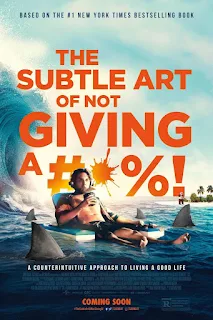The Railway Men: The Untold Story of Bhopal 1984 (miniseries; 2023)
Director: Shiv Rawail
I have come to know of a few people who were working on the Malaysian Railway Lines (Keretapi Tanah Melayu, KTM). They were working at a time when owning a car was a luxury, and interstate travel meant travelling on the train. So much responsibility fell on the shoulders of the Station Master of a railway station. Much like the captain of a ship, the Station Master would take care of his station like a baby. The post carried such pride in the community that people would have forgotten his name. They would just address him as Station Master, much like how one would address a Doctor or Pastor, not by name.
Amongst our family circle lived a distant relative who was the Station Master of the Bukit Mertajam Railway Station. The job was a prestigious one, and it carried much prestige. Bukit Mertajam was an essential and busy station. Even though his name was Jaganathan, everyone referred to his family as the 'Station Master's' family. My sisters and I call him 'Train Tata' (Train Grandfather). Train Tata was married to his job, besides having ten children. He would personally be present at the station every time a train stopped there. His pride and joy were his sparkling and shiny railway shifters.
I never had the opportunity to have an up-and-personal conversation with Train Tata about his job. The main character in this miniseries, Iftekaar Siddiqui, reminded me a lot of him.
The tragic industrial accident in Bhopal hit our shores back in 1983. From the occasional glimpses we got from the foreign news section of the national TV, we understood the devastation it caused. Later in my working life, I did encounter people who were right smack in the heat of things, doing medicine in Bhopal, albeit a few years after the biggest man-made disaster in history. As its death toll exceeded 15,000, after taking the long-term damages that it caused, it is said to have been a greater disaster than Chornobyl or Twin Towers.
Watching the fiasco unfold on Netflix, we get a better understanding of the background of it all. The blast in the Union Carbide chemical factory was a volcano waiting to explode, as described by an independent journalist after his friend died in a minor industrial accident three years previously. The whole thing was hushed.
Working with suboptimal pieces of machinery and ill-trained staff, even the owners of the pesticide-making company, who is credited for making the atomic bomb, knew they were sitting on a disaster. An independent assessor even remarked that the methyl isocyanate (MIC) the factory stores were storing was at risk of leakage. The faulty cooling system, substandard safety measures, and defective pressure gauges could potentially release poisonous cyanide into the environment. Antidote was known by a few, but this information was deliberately kept away from the public and even the administrative agencies. Very few workers were cognisant of the standard operative procedure in case of a catastrophic gas leak.
Minor blemishes did happen but were kept under wraps. The disaster occurred on December 2, 1984, when the system overheated and poisonous gas leaked into the atmosphere.
The miniseries tells of how the railway men of Bhopal station and the GM of railways tirelessly went out of their way to render their services to help people affected by the gas leak. Even though the account of events that happened that night is told in a dramatic fashion, the essential characters in the series did exist, but with different names. Unfortunately, the film failed to mention the names of these unsung heroes at the credit in a way to show appreciation.
Iftekaar Siddiqui, the Station master character, could be Ghulam Destagir, who protected passengers and arranged a safe passage out of Bhopal Junction. The selfless investigative journalist named Jagmohan Kulwant here is Rajkumar Deswani in real life. He went on to win many journalistic awards. There was indeed a railway inspector who was on a surprise visit to Jhansi when the incident happened. He was Gauri Shanker, the General Manager of the Northern Railways. In the series, he was known as Rati Pandey.
The moviemakers decided to spice up the story by including bits about the Sikh witchhunt, as Indira Gandhi had been assassinated a month prior. The part about governmental cover-up is probably not stretching the truth. There were reports of hushing about the severity of the mishap, malaise on the part of rescue efforts and protection of its foreign owners.





.jpeg)















